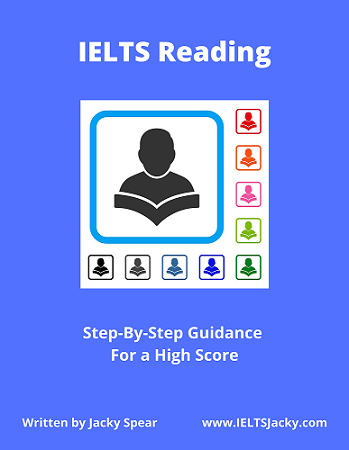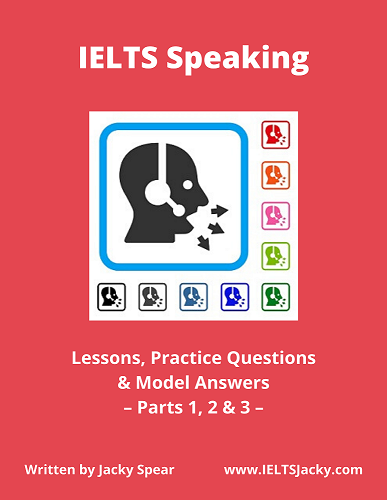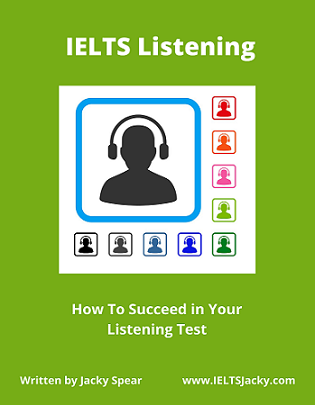IELTS Writing Task 2
To get high marks in IELTS Writing Task 2, two things are essential. You need to:
- Understand what the examiner is looking for.
- Learn the right techniques to write an effective essay.
On this page, we’ll be looking at the general format of Task 2 questions and all the basic information that it’s vital for you to know.
Once you have a good understanding of Task 2, I’ll then show you step-by-step how to produce high scoring essays. You’ll find all these important lessons by following the links to the related pages.
This page includes:
- Task 2 question format
- Example question
- The 5 different types of questions
- Key information
- 5 step essay writing strategy
- How to identify question types
Want to watch and listen to this lesson?
Click on this video.
The Format
The format of IELTS Writing Task 2 questions is always the same:
- You will be given a statement on a topic of general interest.
- The statement will be a specific point of view, problem or argument related to the topic.
- You
will be asked to respond to that statement.
Here is a typical Task 2 question:
Nowadays, more people are choosing to socialise online rather than face to face.
Is this a positive or negative development?
The 5 Question Types
There are 5 different types of IELTS Writing Task 2 essays that you could be asked to write:
- Opinion Essays – Agree or Disagree
- Discussion Essays
- Problem Solution Essays + Causes & Solutions
- Advantages & Disadvantages Essays
- Double
Question Essays
The sample question above is an example of an ‘advantages & disadvantages’ essay. I’ll show you how to decide what type of question you’ve been given after I’ve covered two other important things.
We’ll begin with some key information that you need to know in order to achieve success in IELTS Writing Task 2.
Key Information
# 1 You are required to write 250 words or more.
If you write less than 250 words, you are unlikely to get more than a Band 5 for ’task achievement’ as you won’t have fulfilled the marking criteria.
# 2 You should use a formal style of writing.
# 3 You have around 40 minutes to plan and write your essay.
# 4 Task 2 contributes twice as many marks to your overall score as Task 1.
# 5 It is recommended to do Task 2 first.
Most people do Task 1 first and overrun on the 20 minutes it should take them. This doesn’t leave them enough time to do Task 2 properly. Since Task 2 is worth double the marks, they are, in effect, throwing away valuable marks.
How To Write An Effective IELTS Writing Task 2 Essay
It is common to feel overwhelmed when you read an IELTS Writing Task 2 question and not know how to even begin to approach it. Hence, it’s essential to have an effective strategy to tackle any question you might get.
Fortunately, because the question format is the same for all questions, you can use the same basic technique to write any Task 2 essay.
Here is my recommended 5 step approach.
Step-By-Step Strategy
This 5 step strategy can be used for any question.
1) Analyse the question
2) Plan your answer
3) Write the introduction
4) Write 2 main body paragraphs
5) Write the conclusion
This will give you a well-organised essay of 4 paragraphs.
I show you how to use this strategy on the individual question type pages.
First thought, you need to be able to identify the different types of questions. This is important because in order to write a good essay, you need to understand exactly what the question asks you to do.
Once you fully understand the question:
- You will know how to structure your essay.
- You will know what language to use.
- Both the planning & writing stages will be quicker & easier.
- You will give the examiner exactly what they want.
How to identify the question type
Each of the 5 different types of IELTS Writing Task 2 questions requires a different structure to create a high scoring essay. You will also need to use slightly different language.
Here are the 5 different types of essays again.
Follow the links for step-by-step instuctions for writing each type.
Now for some examples to illustrate the difference between them. The language used in the questions will help you to recognise what type of question it is.
Opinion Essays
This type of question clearly asks for your opinion on the topic, although the language could vary as can be seen in the two examples.
You are required to state whether you agree or disagree with the statement and why.
Example 1
Some people think that more money should be spent on protecting endangered species while others think it is a waste of valuable money.
What is your opinion?
Example 2
Advances in technology and automation have reduced the need for manual labour. Therefore, working hours should be reduced.
To what extent do you agree or disagree?
Discussion Essays
It’s easy to recognise discussion essay questions in IELTS Writing Task 2 because the statement will include two opposing views and the question after it will ask you to ‘discuss’ them and, usually, to give your own opinion as well.
Example 1
Some people believe that school children should not be given homework by their teachers, whereas others argue that homework plays an important role in the education of children.
Discuss both views and give your own opinion.
Example 2
Some people think that exercise is the key to health while others feel that having a balanced diet is more important.
Discuss both sides and give your opinion.
Problem Essays – Causes & Solutions
This type of question starts with a statement stating the problem, then asks you to discuss the causes and the solutions or, sometimes, the causes or the solutions.
Example 1
Due to poorer countries experiencing a ‘brain drain’ , they are seeing many professionals, such as doctors and teachers, leaving to work in more developed countries.
What problems does this cause? What solutions can be suggested to deal with this situation?
Example 2
Many offenders commit more crimes after serving the first punishment.
Why is this happening, and what measures can be taken to tackle this problem?
Different language may be used in individual questions, as can be seen in these two examples. In Example 2, ‘why’ is clearly referring to the ‘cause’ of the problem, and ‘what’ refers to the ‘solution’.
Advantages & Disadvantages Essays
This type of question can be worded in several different ways. It’s common for synonyms of ‘advantages’ and ‘disadvantages’, such as ‘benefits’ and ‘drawbacks’, to be used. This can be seen in the second example.
Example 1
It is becoming increasingly popular to have a year off between finishing school and going to university.
What are the advantages and disadvantages of this?
Example 2
A lot of places in the world rely on tourism as a main source of income. Unfortunately, tourism can also be a source of problems if it is not managed correctly.
Describe the advantages and disadvantages of tourism in the modern world. Do you think that the benefits of tourism outweigh its drawbacks?
Double Question Essays
This is sometimes called a ‘direct question’ essay. This type of IELTS Writing Task 2 question has one statement with two different questions after it. The questions may or may not be linked.
Example 1
Today, more people are travelling to foreign countries than ever before.
Why is this the case? What are the benefits of travelling for the traveller?
Example 2
Most people agree that money cannot buy happiness.
Why is happiness difficult to define? How can people achieve happiness?
It’s vital that you properly answer both questions.
For all 5 questions types, it’s essential that you fulfil the task by fully answering the question. Failure to do so will severely affect your score no matter how good your essay is.
So, that’s a general overview of IELTS Writing Task 2. You’re now ready to learn the techniques needed to plan and write a great essay.
Related Pages
IELTS Writing Test – Understand the format & marking criteria, know what skills are assessed & learn the difference between the Academic & General writing tests.
IELTS
Writing Tips – Top 10 tips to bring you success in your writing test.
Essential information you need to know to achieve a high score.
Task 2:
Understanding Task 2 Questions – How to quickly and easily analyse and understand IELTS Writing Task 2 questions.
The 5 Types of Task 2 Essay – How to recognise the 5 different types of Task 2 essays. 15 sample questions to study and a simple planning structure for each essay type.
How To Plan a Task 2 Essay – Discover why essay planning is essential & learn a simple 4 step strategy, the 4 part essay structure & 4 methods of generating ideas.
How To Write a Task 2 Introduction – Find out why a good introduction is essential. Learn how to write one using a simple 3 part strategy & discover 4 common mistakes to avoid.
How To Write Task 2 Main Body Paragraphs – Learn the simple 3 part structure for writing great main body paragraphs and also, 3 common mistakes to avoid.
How To Write Task 2 Conclusions – Learn the easy way to write the perfect conclusion for a Task 2 essay. Also discover 4 common mistakes to avoid.
Task 2 Marking Criteria – Find out how to meet the marking criteria in Task 2. See examples of good and poor answers & learn some common mistakes to avoid.
The 5 Task 2 Essay Types:
Step-by-step instructions on how to plan & write high-level essays. Model answers & common mistakes to avoid.
Advantages & Disadvantages Essays








